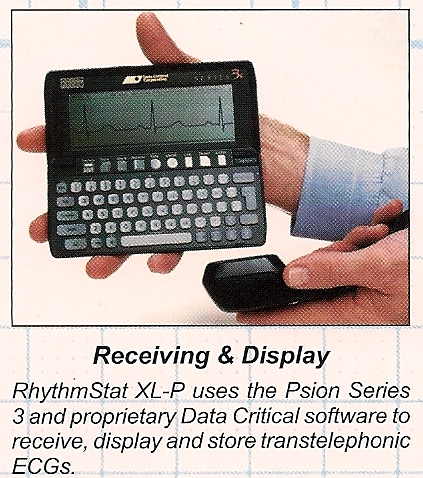 According to a report from consulting firm Emergo Group, FDA officials said they would offer up guidance on how it plans to regulate mobile medical applications before the year is over. The report is not surprising considering the work that the mHealth Regulatory Coalition (mHRC) has done on the subject. Late last year the mHRC submitted its own guidance document for the FDA to consider as it determines how best to regulate mobile medical apps.
According to a report from consulting firm Emergo Group, FDA officials said they would offer up guidance on how it plans to regulate mobile medical applications before the year is over. The report is not surprising considering the work that the mHealth Regulatory Coalition (mHRC) has done on the subject. Late last year the mHRC submitted its own guidance document for the FDA to consider as it determines how best to regulate mobile medical apps.
The question of whether the FDA would regulate the industry was never a serious one -- it's always been a matter of how.
"Manufacturers have thus far received little official guidance from the FDA regarding how the CDRH would handle mobile medical applications... According to information provided by FDA officers at the town hall, software validation will be required for mobile medical applications. Whether such devices would have to go through 510(k) or pre-market approval processes, or be ruled 510(k)-exempt—has not yet been determined, [the officials] said," according to the Emergo report.
Of course, the FDA has cleared medical devices that connect to cellular networks via embedded chips or through connections to mobile phones. In recent years the FDA has also granted 510(k) clearances to a number of health-related software applications intended for use on smartphones, mobile phones or PDAs. Yes, the regulation of medical software on handheld devices began long ago.
The Emergo report pointed to a couple of the more well-known examples of medical apps that have received FDA clearances, and their inclusion of MobiUS's Mobisante is a little off the mark is correct. UPDATE: Mobisante CEO Sailesh Chultani confirmed with MobiHealthNews that although the summary document for its MobiUS Ultrasound Imaging System's 510(k), clears the probe to connect to a "host computer" and makes no mention of software on or accessed through a mobile phone, the longer 510(k) document does.
However, after a quick search of the FDA's 510(k) clearances archive we discovered only seven eight nine ten eleven examples of mobile medical software that have achieved FDA's greenlight over the years. (Keep sending them in!) Ignore the misleading headlines that the FDA is set to begin regulating mobile medical apps, it's clear that the FDA began years ago:
October 1997: FDA approves Data Critical's RhythmStat XL System

"The RhythmStat XL System is indicated for use in the diagnostic evaluation and recording of ECG waveforms from a cardiac event recorder. It is intended to provide remote access to ECG data by transtelephonic transmission from an ambulatory cardiac event monitor to the portable PSION palmtop computer with RhythmStat XL Software, where the ECG waveforms are demodulated, recorded, displayed and stored," Data Critical wrote in its filing.













